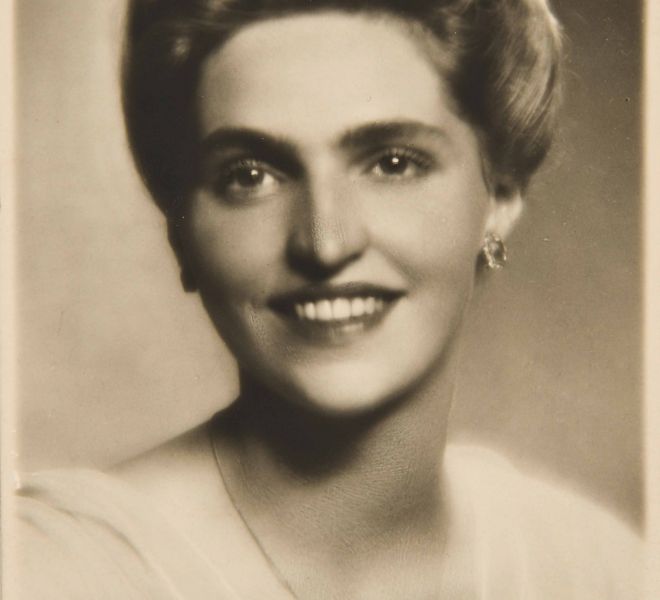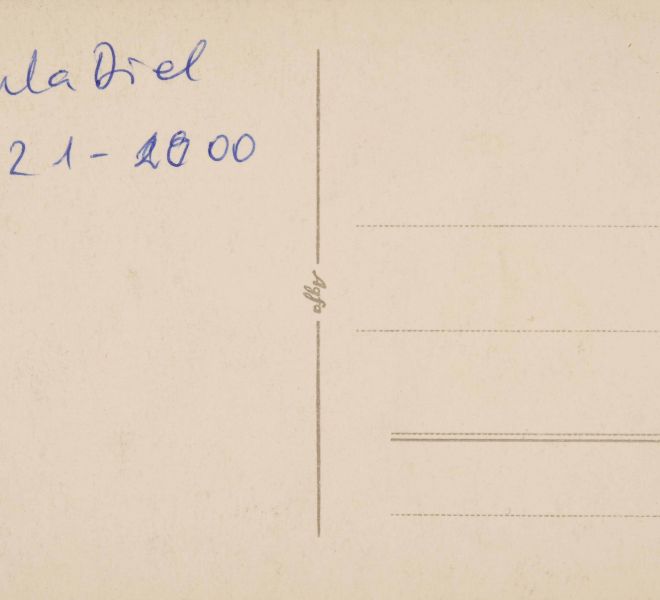Victor Babeș Boulevard
Built by Arpad Mühle, between 1909-1910, the house, with its garden, was one of the most beautiful properties in Timisoara.
Listen to the audio version.
Mühle's garden along with Niemetz’s, were in the second half of the 19th century, the most important gardens in Elisabetin, and the families who owned them occupied a prominent place in this neighborhood. Their cultures were oriented in two main directions, namely, plant cultivation and the development of tree nurseries.
The Mühle family, whose roses were famous across the borders of the monarchy, mainly deals with the cultivation of ornamental plants, many other species of flowers, but also seed culture. Originally from Bohemia, Wilhelm Mühle, became one one of the most famous horticulturists in Europe. After settling in Timisoara he got employed within horticulturist Niemetz’s company and soon he became co-owner of the company. In 1876 he set up a nursery in the Elisabetin district and opened a flower shop, which both became famous. His rose garden supplied Southeast Europe with flowers, but also Budapest and Vienna as a supplier for the royal and Imperial court. In the same year, he opened a store on the current Alba-Iulia street in Timișoara. He has participated in numerous exhibitions, being involved in organizing some, including the great Industrial-Agrarian Exhibition from 1891 in Timișoara. He was also the editor of the Rózsa Újság publication, in which he published specialized articles. His son, Árpád Mühle, a renowned horticultural technician, succeeded him in leading the company, enlarging the garden with three more square jugs on Bischof road (today M. Viteazu Blvd.) bought in 1901 from the city. His brother-in-law, the gardener Franz Niemetz, was recognized in the field of nurseries, its first and most beautiful garden being in Elisabetin, at the end of Kronen street (today Independenței street), owning a garden also in Calea Aradului.
The house of the Mühle family was built by Arpad Mühle between 1909-1910. In the first decades of the twentieth century the house with its garde was one of the most beautiful properties in Timisoara. A home with a basement and high ground floor, built in eclectic style with neo-baroque influences, punctuated by the shape of the roof and the staircase from the entrance. The last descendants of the Mühle family left for Germany in 1992, and the house, which has changed a number of owners in recent decades, is now in an advanced stage of degradation.
Bibliography:
- Josef Geml, Vechea Timișoară în ultima jumătate de secol 1870-1920, Cosmopolitan Art Publishing House, Timisoara, 2016, 117-118.
- Nicoleta Demian et al, Personalities from Banat, National Museum of Banat, Timișoara, 2018, p. 26.
- https://www.banatulazi.ro/casa-unui-erou-al-timisoarei-ruinata-de-clanul-carpaci/ site accessed on March 15, 2020 .
- https://heritageoftimisoara.ro/cladiri/Elisabetin/adresa/Mihai+Viteazu/3 – site accessed on March 16, 2020.
Listen to the audio version.
Pia Brînzeu, Family Journal, Manuscript
Stop 8: The Mühle Family’s House on Mihai Viteazu Boulevard
September 9, 1938.Mother starts her private diary entitled “From the life of a young girl living in the 20th century”. She introduces herself: “My name is Carla Diel and I am the daughter of a well-known surgeon from Timișoara and the granddaughter of the much sought-after doctor Diel from Jimbolia.” She is seventeen and in the third and last year at the Amizoni College in Budapest, where rich girls are trained to be housewives. Their teachers think that the young women will become the managers of a “company” and will have to have confident skills: to know how to run a household, to manage the servants, to raise children, and to give correct instructions to the cook so she can cook well. Everything is devoted to the husband, with dedication and enthusiasm.
Mother spends her Sundays with the Capdebo family. Rozsi von Capdebo is grandmother’s friend, who moved to Budapest after her divorce, and Dezsö, her son, grew up with my mother in Timişoara.
In her diary, Mother describes her confused feelings: she is troubled and thinks she should know better whom she loves. Dezsö, who is twenty-five years old and is an attractive engineer, tall, with dark hair and dark eyes, or Laci Urbanetz, the dentist, who is thirty five years old, still with dark hair and dark eyes, but with a moustache. Mother is young and the war hasn’t started yet, so she feels optimistic. She has no financial concerns, as the family owns numerous properties: there is father’s sanatorium in Timişoara, grandfather’s house in Jimbolia, another house belonging to grandmother in Austria, an apartment in Budapest. They will all be hers one day, Mother writes, together with the several millions in the bank. So she can marry whoever she pleases, although the two men are not exactly poor.
Mother describes her inner struggles fervently. Her dialogue with her diary (“my dear diary”, “you may think I abandoned you because I haven’t written for so long”, “I’m glad that I came back to you”) is also lively. She doesn’t know who will read her notes, maybe a young girl who will understand her emotional uncertainties. And how can she be certain when Dezsö is disappointing her by being selfish and hypochondriac, and Laci doesn’t love her because she is too young? She decides, after a year of long inner debates and with the wisdom of the eighteen years she reaches at last, to let Laci win the case. She would be happy to marry him, Mother confesses, especially since he complimented her for wearing a very chic expensive dress, sewn at Mrs. Traxel’s studio (a seamstress mentioned, together with the Urbanetz family, in The Sunken Church Bell, one of Livius Ciocârlie’s novels about the old Timişoara,).
As a consequence, Dezsö is gloomy and edgy. He is courting her more and more assiduously; he senses that he has lost the fight and is lurking around her, feeling to the utmost his fall from grace. He doesn’t know that the destiny will push Mother in other directions and all that will be left from my mother’s love for Urbanetz will be a Rosenthal porcelain basket received for Christmas, an Empire crystal chandelier from the doctor’s mother and a couple of fillings I got during my childhood.
Mother will pass away six decades later. She spends her last days moving back and forth between two worlds: the world of her physical sufferings here and the world of dreams, which already connects her to the departed. One of these dreams returns repeatedly and she confesses it to me in a moment of lucidity: she arrives at an unknown train station and the one who is waiting for her to take her to a new, unknown destination, is Dezsö von Capdebo. When, after my mother’s death, I pluck up the courage to read her diary, I will realize that he was the one who finally won the battle, and that our feelings of love or our relationships with others never stop where we think they do.










